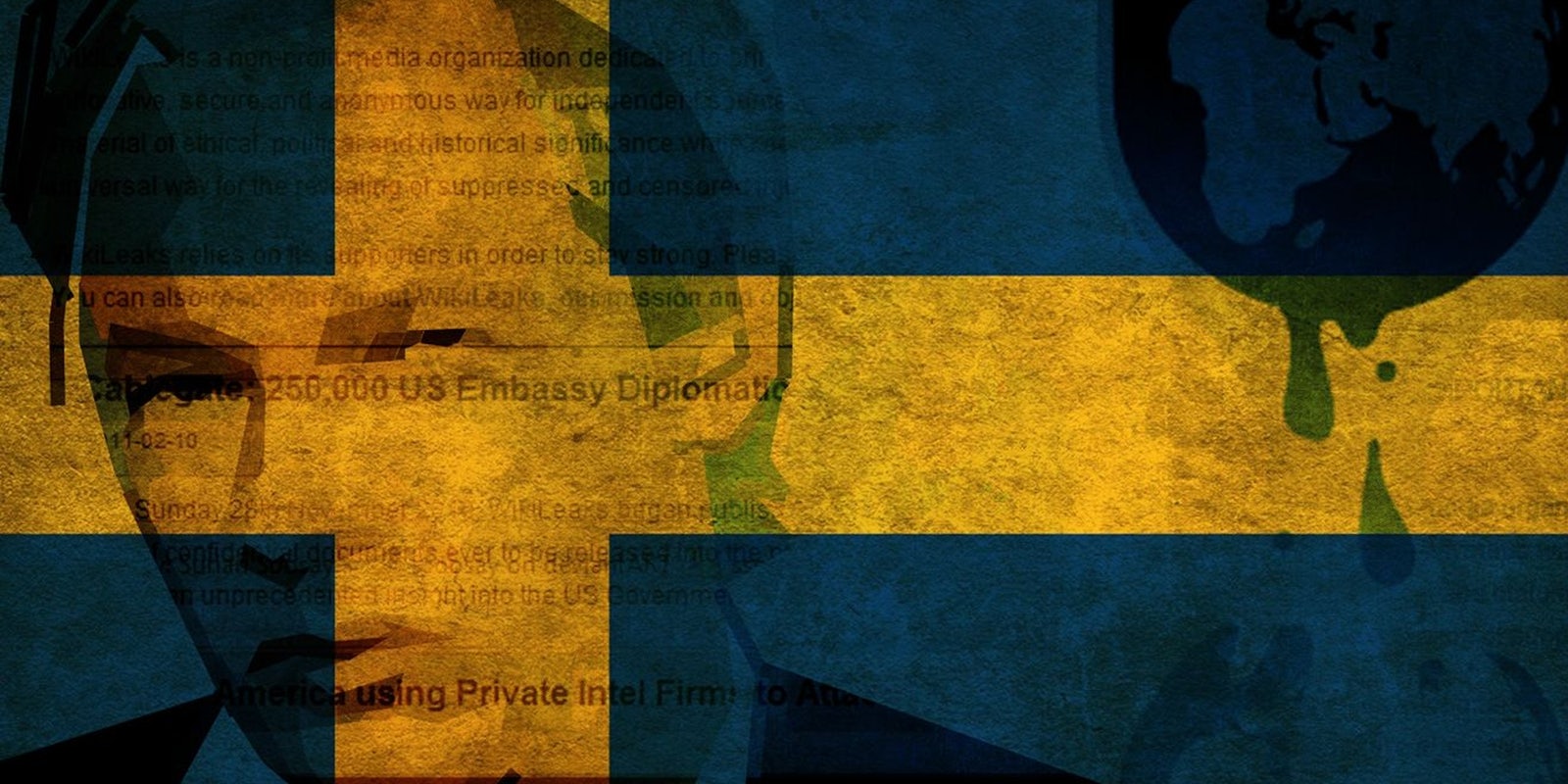A Swedish judge has ruled to keep an arrest warrant out for WikiLeaks founder Julian Assange, according to multiple sources at the hearing.
That means that, despite a glimmer of hope for Assange’s supporters, he will remain confined to the embassy where he’s spent the past two years.
Save for the allegations of criminal sexual behavior, Assange’s personal story has in recent years seemed like a children’s geography show—or at least some kind of geography show. He’s a native Australian, accused of assaulting two women in Sweden, holed up in the Ecuadorian embassy in London, England, to stave off extradition.
Those accusations, first leveled in August 2010, have always been controversial. He stands accused of non-consensual sexual behavior with two women while he was in Sweden—accusations he’s repeatedly denounced as politically motivated—and was granted Ecuadorian asylum two years later. While it’s impossible to verify Assange and his supporters’ claims that those accusations were motivated by WikiLeaks’s habit of exposing embarrassing government secrets, it’s clear that he has powerful enemies: At least one low-level WikiLeaks employee has secretly been an FBI informant.
Whoever runs the WikiLeaks Twitter account—believed to often be Assange himself, even when speaking of him in the third person—tweeted minutes before the verdict its opinion that getting the warrant lifted was unlikely, though it hinted at hope that a higher court will later throw the case out.
#Assange court outcome: We estimate 15% chance of warrant lifted at this low level. 50% chance of some change. 35% chance of status quo.
— WikiLeaks (@wikileaks) July 16, 2014
Correction: While Sweden has issued warrants for Julian Assange’s arrest, he has not been officially charged with a crime.
Photo by ssoosay/Flickr (CC By 2.0) | Remix by Fernando Alfonso III


